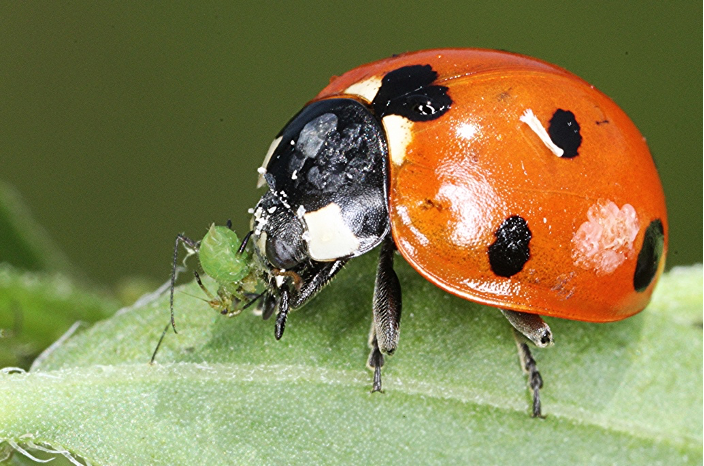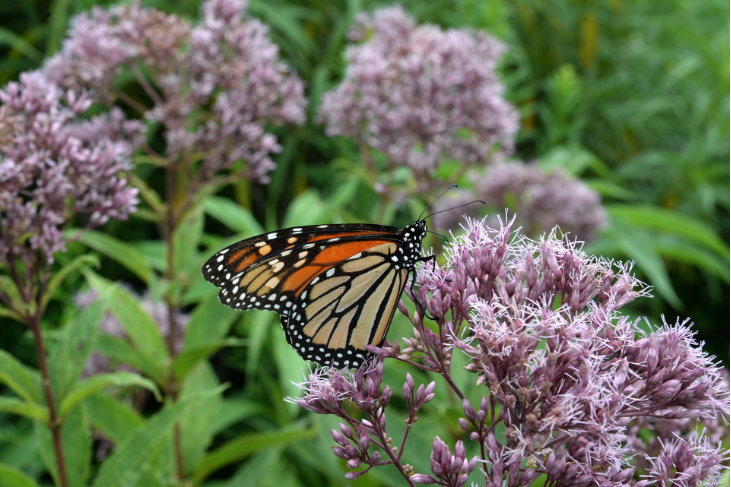|
You know, we talk a lot about insect pests and how to control them on the Bug Lessons blog. However, insects play a very important role in various ecosystems around the world. In this blog, we want to focus on the traits that make insects unique, valuable, and critical to a happy, healthy earth! Read on to find out why bugs are not just foes—in fact, most of them are friends. A Few Fun FactsInsects are all over the place. We mean that literally; insects are the most abundant animals on the planet. Over 1.5 million species of insects are currently described, and there are probably many more that we haven’t even found yet! There are insects in almost every habitat within every biome and they come in all sorts of colors, shapes, sizes, and exhibit many amazing and unique behaviors. Although we tend to focus on ways to get rid of insects that cause damage, today we are going to go over five reasons why we actually need insects to help sustain us and our planet. 1. Insects form the base of the food web. Insects are the largest food source for animals that eat meat—both on land and in freshwater. Because there are an estimated one quintillion (1,000,000,000,000,000,000) insects on earth at any one time, they outweigh and outnumber all other animals combined. This means that insects are the biggest link between plants and animals in food webs. 2. Insects are predators, too, and they keep many harmful organisms in check. Although not technically insects, spiders eat anywhere from 400-800 million tons of insect pests annually. Wasps are voracious predators that can consume up to two pounds of pest insects within a 2,000 square foot garden. Called “biological control”, many insects serve as natural enemies of pest insects and we use these insects to control pests in an array of settings (e.g., releasing lady beetles to control aphids in greenhouse settings).  Insects are, on occasion, their own worst enemies. A lady beetle can eat as many as 50 aphids in a day. Many insect predators play an important role as natural enemies (organisms that reduce the population sizes of other organisms) that control pest insects (insects that can cause damage within ecosystems). (Image Credit: John Flannery, Image Source: Wikimedia Commons) 3. You’ve probably already heard the buzz (no pun intended) associated with insect pollinators such as honey bees. Insects play a nearly incalculable role in the pollination of plants. Approximately 75% of plants require an animal pollinator. There are over 200,000 animal pollinators, and the majority of these are insects. Various agency efforts to protect insect pollinators are crucial, because it is estimated that insects provide more than 24 billion dollars to the US economy through their pollination services. 4. Insects also provide waste services. Many insects are scavengers or decomposers that break down dead or dying materials to form new life. They clean up dung, dead plants, dead animals, and recycle wood—and they turn these waste materials into nutrient rich sources of organic matter for other organisms. Humans may be struggling to understand recycling, but insects have it down pat! 5. Did you know that some insects and/or insect byproducts can serve as medicine? Bee venom is a powerful compound used to treat rheumatoid arthritis (RA), gout, osteoarthritis, chronic fatigue system, and a number of other ailments. As weird as it may sound, maggots are helpful in cleaning up infected wounds. Maggots eat the infected tissue, leaving healthy tissue behind. This is a strategy that has been utilized since the Mayans. Scientists are still researching other uses for insects as medicine, too, so stay tuned! ConclusionsInsects have been around since well before the dinosaurs. They were the first flying creatures on earth and have managed to survive multiple mass extinctions. Insects do not need humans, but humans certainly need insects to survive and thrive. Nonetheless, insect diversity and abundance are declining. It is up to all of us to be aware of threats to beneficial insects, such as monoculture, forestry practices, loss of habitat, pesticide use, climate change, and invasive species. In addition to awareness, we need to take action against these threats, too. A loss of insects could, quite literally, threaten our existence. There will always be a need to control damaging pest arthropods, but in our haste to kill or hate insects, let’s be sure to take a moment to appreciate just how much these little critters do for us. For a bit more information, check out this article and helpful video from The Florida Museum.
0 Comments
Your comment will be posted after it is approved.
Leave a Reply. |
Bug Lessons BlogWelcome science communicators and bug nerds!
Interested in being a guest blogger?
Archives
November 2023
Categories
All
|
